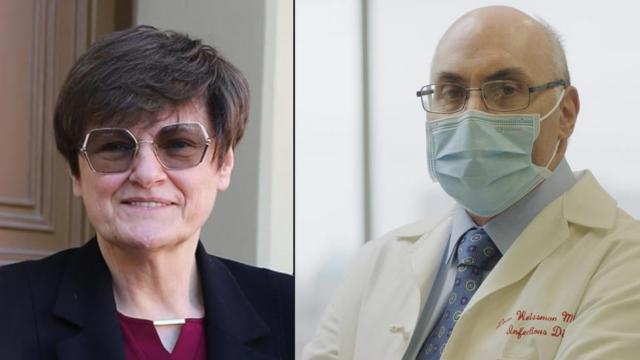The 2023 Nobel Prize in Physiology or Medicine went to two scientists whose vaccine breakthrough contributed to developing the mRNA COVID-19 vaccine. Professor Katalin Karikó and Professor Drew Weissman received the honour on Monday for their “groundbreaking findings” in a paper that went largely unnoticed until the COVID-19 pandemic grew rampant in 2020.
When Karikó and Weissman met in 1998, they started studying messenger RNA (mRNA) which was so delicate that the cells destroyed it. However, the two scientists discovered that by slightly altering the mRNA, they were able to direct it to force the cells to make the type of protein they chose. This meant the mRNA would cause the body to produce the antibodies and special immune system cells that could attack the virus.
Karikó and Weissman published their findings in 2005 in a publication called Immunity, after their paper was rejected by the journals Nature and Science. The modification meant they could select how RNA responds to the pathogen, presenting a different approach to tackling diseases like influenza, and later, the coronavirus.
“During the biggest public health crisis of our lifetimes, vaccine developers relied upon the discoveries by Dr. Weissman and Dr. Karikó, which saved innumerable lives and paved a path out of the pandemic,” J. Larry Jameson, executive vice president of UPenn’s School of Medicine told CNN. “More than 15 years after their visionary laboratory partnership, Kati and Drew have made an everlasting imprint on medicine.”
Historically, scientists updated vaccines to introduce a piece of the virus that would prompt the mRNA to respond by giving the immune system a chance to fight the illness in case the person is exposed to the virus at a later time. But Karikó and Weissman changed everything when their paper attracted the attention of Moderna and BioNTech. Both companies studied how the mRNA vaccine could contribute to the flu and cytomegalovirus, among others, but their studies remained in critical trials for years.
When the COVID pandemic began, their research became the building blocks for the Pfizer and Moderna vaccines. Their discovery “fundamentally changed our understanding of how mRNA interacts with our immune system,” the Nobel Assembly at Karolinska Institute said in a press release. It added: “The laureates contributed to the unprecedented rate of vaccine development during one of the greatest threats to human health in modern times.”
The chair of the Nobel committee, Professor Gunilla Carlssom said during the announcement: “I think in terms of saving lives, especially in the early phase of the pandemic, it was very important,” The Guardian reported. Karikó and Weissman received 11 million Swedish kronor ($US999,513) for their contributions to medicine.
The Nobel Prize announcements will continue throughout the rest of the week including awards in physics, chemistry, literature, and economics. The final award for the Nobel Peace Prize will be announced in Norway on Friday.
